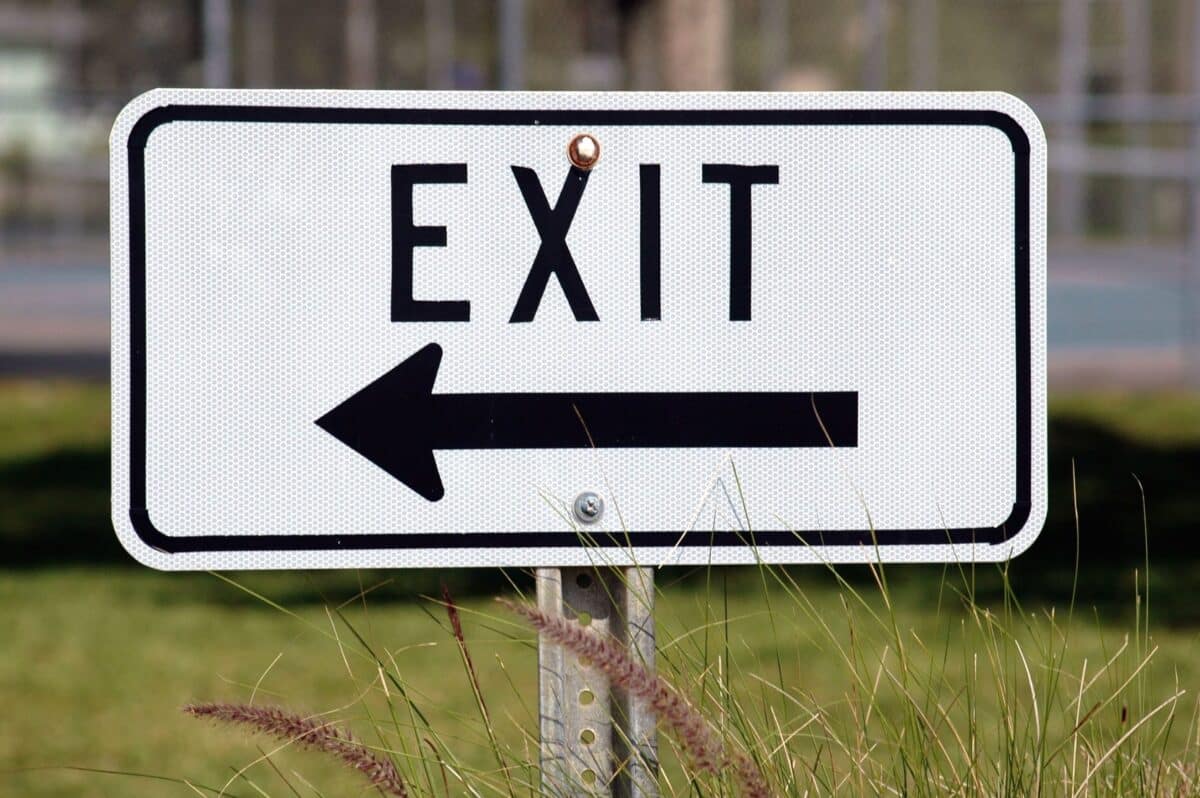Top 15 Private Schools in Toronto

Best private schools in Toronto not only promise academic excellence but also wield a powerful influence on local real estate trends. Toronto’s real estate market is as dynamic as the city itself, with various factors influencing buyer preferences and property values. One standout driver? Proximity to the city’s prestigious private schools.
For families, living near top-tier private schools means access to exceptional education and an enhanced quality of life. For investors, it’s an opportunity to capitalize on properties in high-demand areas that consistently appreciate in value.
As the intersection of education and real estate gains traction, understanding the connection becomes essential for making informed decisions. This blog explores Toronto’s 15 best private schools, highlighting their impact on neighbourhood desirability, tuition costs, property values, and why they matter.
What You’ll Learn About Private Schools in Toronto
- Profiles of Top 15 Private Schools in Canada
Get an in-depth look at Toronto’s best private schools, their unique features, and how they enrich their local communities. - Why Choose Private Over Public Schools in Toronto?
In this section, explore the differences between private and public schools in Toronto, focusing on curriculum, class sizes, extracurriculars, and networking opportunities to help you choose the right educational path for your family. - Tuition Costs in Private Schools in 2025
Explore the key factors influencing private school tuition in Toronto for 2025, including average costs, additional fees, financial aid options, and the overall value of private education. - Why Proximity to Private Schools Matters
Discover how living near Toronto’s top private schools benefits families and investors, influencing property values and lifestyle. - Impact on Real Estate Trends
Learn how these prestigious institutions shape neighbourhood desirability and drive up home prices in their vicinity. - Practical Tips for Property Buyers and Investors
Find actionable advice on choosing the right property near these sought-after schools, tailored for families and investors.
List of Best Private Schools in Toronto
Toronto boasts an impressive array of private schools, each offering unique opportunities for students. Below, we provide a detailed overview of 15 of the city’s best private schools, highlighting their distinctive features and how they shape the surrounding neighbourhoods.
1. Upper Canada College (UCC)
- Location: Forest Hill
- Features: Offers the International Baccalaureate (IB) program, renowned for academic excellence and leadership development.
- Notable Fact: UCC is one of Canada’s oldest independent schools, established in 1829.
- Nearby Projects:
- 1 Thelma Avenue
- Forêt Forest Hill Condos
- 429 Walmer Road Condos
- Forest Hill Residences
Founded in 1829, Upper Canada College (UCC) is Canada’s first private boys’ school, located in Toronto’s affluent Forest Hill. Its 42-acre campus is a local landmark, with Avenue Road curving around it. UCC has a history of producing distinguished alumni, including premiers, prime ministers, and Olympic medalists, many of whom attend prestigious universities. Known for its rigorous academics and supportive environment, UCC remains one of the country’s top educational institutions.

2. The Bishop Strachan School (BSS)
- Location: Forest Hill
- Features: All-girls school with a strong focus on STEAM (Science, Technology, Engineering, Arts, Mathematics) education.
- Notable Fact: BSS fosters a collaborative and innovative learning environment.
- Nearby Projects:
- Forest Hill Residences
- 1 Thelma Avenue
- 429 Walmer Road Condos
- Forêt Forest Hill Condos
The Bishop Strachan School, founded in 1867, is a prestigious all-girls boarding school nestled in Toronto’s Forest Hill neighbourhood, offering comprehensive programs from kindergarten through grade 12. Renowned for its internationally recognized pre-university courses, BSS draws a diverse student body and emphasizes global exchange.
3. Havergal College
- Location: Lawrence Park
- Features: All-girls school with robust academic, athletic, and arts programs.
- Notable Fact: Known for its emphasis on community service and global citizenship.
- Nearby Projects:
- 183 Avenue Road Condos
- Linx Condos
- 2674 Yonge Street Condos
Havergal College, established in 1894, is a prestigious private girls’ school in Canada, set on a 22-acre campus with state-of-the-art facilities; the largest girls’ independent school campus in the city. Offering programs from Kindergarten to Grade 12, it excels in academics, arts, sports, and leadership. Its strong reputation results in graduates securing admissions to top universities globally, such as the University of Toronto, Princeton, and Harvard.

4. Crescent School
- Location: Bridle Path
- Features: All-boys school focusing on character development and academic achievement.
- Notable Fact: Offers an innovative robotics and technology program.
- Nearby Projects:
- 2 Post Road
Crescent School, founded in 1913, is a distinguished boys’ school in North York, educating students from Grade 3 to 12 on a 30-acre campus with state-of-the-art facilities. With a robust curriculum that includes advanced courses in languages, arts, technology, and more, Crescent School ensures graduates are well-prepared for university, with many gaining admission to top institutions globally. The school also prioritizes physical fitness and extracurricular activities, boasting a highly successful robotics program.
5. St. Michael’s College School
- Location: Forest Hill South
- Features: Catholic all-boys school with a rich tradition in athletics and academics.
- Notable Fact: Known for producing top-level athletes and scholars.
- Nearby Projects:
- Forêt Forest Hill Condos
- Forest Hill Residences
- 1 Thelma Avenue
- 429 Walmer Road Condos
St. Michael’s College School (SMCS) in Toronto is Canada’s largest Catholic school for young men, providing a rigorous university-preparatory program for Grades 7 to 12. Renowned for its strong academics and competitive athletics, particularly in ice hockey, football, and basketball, SMCS has produced numerous professional athletes, including those in the NHL, NBA, NFL, and CFL.

6. Branksome Hall
- Location: Rosedale
- Features: All-girls school offering the IB program and a state-of-the-art athletics and wellness facility.
- Notable Fact: Recognized for its global exchange programs.
- Nearby Projects:
- No 7 Rosedale Condos
Branksome Hall provides personalized education from Junior Kindergarten to Grade 12, customizing coursework and learning speeds to meet each student’s unique needs. The school prepares students for academic assessments and offers support through programs like Peer Tutoring. In Grades 9 and 10, students engage in the Duke of Edinburgh Awards Program, while those in the International Baccalaureate (IB) Diploma Programme focus on creativity, activity, and service.
7. Toronto French School (TFS)
- Location: North York
- Features: Bilingual education in French and English, offering the IB program.
- Notable Fact: Known for producing multilingual graduates ready for international careers.
- Nearby Projects:
- LSQ Condos Phase 3
- Bayview Ridge Residences
- Bayav Condos
- K01 Condos
- Bayview Woods Condos
The Toronto French School (TFS), founded in 1962, offers bilingual education from pre-kindergarten to Grade 12 at its Toronto and Mississauga campuses. TFS integrates French and Ontario curricula with the International Baccalaureate (IB) framework, leading to proficiency in French, English, and Spanish. The school fosters a diverse community, provides modern facilities, and supports academic rigour, preparing students for top universities with a robust bursary program.

8. Bayview Glen School
- Location: North York
- Features: Focuses on individualized learning and a broad co-curricular program.
- Notable Fact: Offers a strong Advanced Placement (AP) program.
- Nearby Projects:
- 1 Deauville Lane Condos
- The Inclusive on Lawrance
- 20 De Boers Drive
- Seasons Condos by Concord
Bayview Glen School, founded in 1962, is a prestigious co-educational institution in Toronto, serving students from age 2 to Grade 12 across two North York campuses. The school offers a rigorous university preparatory curriculum with AP courses and emphasizes holistic education, focusing on academic excellence, character development, and social responsibility.
9. St. Clement’s School
- Location: Yonge and Eglinton
- Features: All-girls school emphasizing academic rigour and leadership skills.
- Notable Fact: Small class sizes for personalized attention.
- Nearby Projects:
- 44 Eglinton Avenue West Condos
- 500 Duplex Avenue Condos
- 21 Henning Avenue Condos
- 2010 Yonge Street Condos
St. Clement’s School (SCS), established in 1901, is a prestigious independent girls’ school in central Toronto, known for its rigorous academic program with AP courses. The school boasts a low student-to-teacher ratio of 8:1, ensuring personalized attention and academic success. SCS offers a wide range of co-curricular activities, competitive sports, and modern facilities, fostering holistic development and global citizenship through its Round Square membership.
10. The York School
- Location: Summerhill
- Features: Co-educational school offering the IB program across all grades.
- Notable Fact: Encourages innovation and interdisciplinary learning.
- Nearby Projects:
- 1140 Yonge Street Condos
- 1303 Yonge Street Condos
- One Roxborough West
- 49 Jackes Avenue Condos
The York School, established in 1965, is a distinguished independent co-educational institution in midtown Toronto, offering education from Junior Kindergarten to Grade 12. As an IB World School, it emphasizes inquiry-based learning and real-world applications, preparing students for global citizenship and university success. The school features small class sizes, personalized instruction, a dynamic athletics program, modern facilities, and a strong commitment to social justice and global perspectives.

11. De La Salle College “Oaklands”
- Location: Midtown Toronto
- Features: Catholic co-educational school with a strong emphasis on traditional values and academics.
- Notable Fact: Offers a rich performing arts program.
- Nearby Projects:
- Motto Condos
- 30 Scollard Street Condos
- Designers Walk Condos
- One Roxborough West
De La Salle College “Oaklands,” established in 1851, is a distinguished independent Catholic school in Toronto, serving students from Grade 5 to Grade 12. The school offers a rigorous liberal arts curriculum with AP courses, preparing students for university. Situated on a 12-acre campus with state-of-the-art facilities, De La Salle fosters a community grounded in Lasallian traditions, emphasizing academic excellence, character development, and community service.
12. WillowWood
- Location: Don Mills
- Features: Renowned for its dedication to personalized education, tailored to support students with learning differences, such as ADHD and other challenges.
- Notable Fact: The Pod System for grades 1-6 tailors programming to each student’s functioning level.
- Nearby Projects:
- 801 York Mills Road Condos
- Spirits Condos
- 895 Lawrence Avenue East Condos
WillowWood School, established in 1980, provides personalized education from Grade 1 to Grade 12 using a collaborative teaching approach and small class sizes. The Pod system for Grades 1-6 adapts learning to individual levels, while the school’s strong international program supports English learning and university preparation. The curriculum integrates mindfulness and digital literacy, fostering socioemotional well-being and a culture of kindness.
13. Junior Academy
- Location: York Mills
- Features: Junior Academy integrates daily movement and play into its curriculum, enhancing physical health, cognitive function, and overall well-being.
- Notable Fact: Focuses on a strength-based educational approach.
- Nearby Projects:
- 20 Fleeceline Road Condos
Junior Academy is a top private school in Toronto for students from Junior Kindergarten to Grade 8, offering a project-based curriculum to enhance logical thinking and problem-solving skills. Additionally, Junior Academy focuses on stress management using Dr. Stuart Shanker’s self-regulation model to promote social and emotional intelligence.
14. St. George’s College
- Location: Annex
- Features: Catholic school offering rigorous academics and faith-based education.
- Notable Fact: Strong alumni network and community ties.
- Nearby Projects:
- 145 St George Street Condos
- 334 Bloor Street West Condos
- One Ten Avenue Road Condos
- 171 Lowther Avenue Condos
Royal St. George’s College (RSGC) is a prestigious independent boys’ school in Toronto, Ontario, offering education from Grades 3 to 12. Founded in 1961, RSGC emphasizes academic excellence, character development, and community involvement. The school features a rigorous curriculum, holistic development through arts and athletics, strong community values, a musical heritage, modern facilities, and diverse extracurricular activities to prepare students for future success.

15. Hudson College
- Location: St. Clair West Village
- Features: Emphasizes a balanced curriculum that integrates critical thinking.
- Notable Fact: Offers a Reggio Emilia-inspired program in its Lower School, promoting experiential and collaborative learning.
- Nearby Projects:
- 908 St. Clair Ave West Condos
Hudson College fosters a nurturing environment that encourages individuality and personal growth. Its flexible curriculum allows students to choose courses based on their preferences, celebrating diversity and individuality. The school also offers additional support through tutoring, counselling, and workshops, equipping students with the skills and confidence needed for success in higher education.
These schools not only provide exceptional education but also enrich their neighbourhoods, creating highly sought-after real estate markets. Let’s now explore how these institutions directly influence property values and market trends.

Why Choose Private Over Public Schools in Toronto?
Deciding between private and public schools in Toronto involves weighing distinct advantages that each offers. Here’s a comparative look to help make an informed choice:
- Curriculum Customization: Private schools often feature specialized curriculums tailored to diverse interests—from STEM to the arts—unlike the standard provincial curriculum followed by public schools.
- Class Size: Private schools typically have smaller class sizes, providing more personalized attention and individual support compared to the larger class sizes common in public schools.
- Extracurricular Opportunities: With generally more funding, private schools in Toronto offer a broader range of extracurricular activities, which can significantly enhance a student’s educational experience and personal development.
- Academic Standards: Private schools are renowned for their rigorous academic environments, fostering a culture of excellence that consistently prepares students for higher education more intensively than many public schools.
- Cultural Diversity: While public schools reflect community diversity, private schools often attract a wide range of international students, offering a global perspective that enriches the educational experience.
- Networking Opportunities: Private schools usually maintain strong alumni networks, providing students and families with connections that can be beneficial for future academic and career opportunities.
By comparing these aspects, families can determine whether the tailored experiences and enhanced opportunities at private schools align better with their educational goals and expectations than the offerings of public schools in Toronto.

Tuition Costs in Private Schools: Understanding Key Factors
When considering private education in Toronto, understanding tuition costs for 2025 is crucial for planning and budgeting. Private school tuition in Toronto can vary widely depending on several factors, including the school’s prestige, programs offered, and facilities available.
- Tuition Range: In 2025, the average tuition fee for private schools in Toronto generally ranges from $15,000 to over $35,000 annually. This variation reflects the diversity in the types of schools available, from those offering basic education to prestigious institutions with advanced programs and facilities.
- Additional Costs: Beyond the base tuition, parents should also consider additional expenses that can include uniforms, books, extracurricular activities, and other school-related costs. Some schools may also charge for meals, co-curricular activities, and transportation.
- Financial Aid and Scholarships: To make education more accessible, many Toronto private schools offer financial aid and scholarships. These are often merit-based, catering to students who demonstrate academic excellence, special talents, or need-based support.
- Investment in Quality: Despite the significant investment, private schools justify their costs with smaller class sizes, specialized programs (like International Baccalaureate and Montessori), and comprehensive extracurricular opportunities that enrich the student’s educational experience.
- Long-term Benefits: The high standards and diverse programs available at Toronto’s private schools are designed to prepare students not only for higher education but for future careers, offering an environment that fosters academic excellence and personal growth.
Parents considering private schools in Toronto for 2025 should assess these factors carefully to choose the best educational path for their children, aligning financial capabilities with their child’s educational needs and future aspirations.
Why Proximity to Schools Matters in the Real Estate Market
The location of a home in relation to reputable schools is one of the most significant factors families consider when buying property. Proximity to private schools doesn’t just benefit families with children; it also has a notable impact on property values, making it a key consideration for real estate investors.
Advantages of Being Close to Schools – From a Homeowner’s Point of View
- Educational Convenience: Living near a top private school in Ontario means shorter commutes for students, providing them with more time for studies, extracurricular activities, and relaxation.
- Improved Quality of Life: Families benefit from safe neighbourhoods, strong community ties, and local amenities typically found near private schools.
- Resale Value: Homes in these areas appeal to future buyers, particularly families, making them easier to sell at competitive prices.
- Access to Prestigious Networks: Private schools in Toronto often host events and programs that foster valuable connections for both students and parents.
Advantages of Being Close to Schools – From an Investor’s Point of View
- Higher Property Values: Properties near top-tier private schools often experience increased demand, driving up home prices and creating a premium market segment.
- Stable Investment Potential: Real estate near reputable schools tends to retain or appreciate in value, even during market fluctuations, making it a secure investment choice.
- Broader Market Appeal: The desirability of living near prestigious schools extends beyond families with children, attracting a wide pool of buyers and renters.
- Rental Income Opportunities: Investors can capitalize on consistent demand from families seeking proximity to these institutions, often securing higher rental rates.
In summary, proximity to private schools in Toronto typically results in higher real estate values and better resale prospects. Properties near top private schools can command a 5-15% price premium or more compared to similar properties elsewhere. In highly sought-after areas with limited housing, this premium can be even higher.
Tips for Choosing Properties Near Top Private Schools
Selecting a property near the best private schools in GTA is a significant decision for both families and investors. Here’s an in-depth guide to making the most informed choice:
1. Research School Reputation
Each top private school in Ontario has its strengths, whether it’s academic excellence, a focus on arts, or specialized programs like the International Baccalaureate.
- Review school rankings and academic performance.
- Look at alumni achievements to gauge long-term benefits.
- Check parent reviews and testimonials for real-world insights.
2. Evaluate Proximity and Commute
The closer your property is to the school, the more valuable it becomes.
- Seek properties within walking distance or a short drive.
- Consider how proximity reduces daily stress and transportation costs.
- Account for seasonal challenges, such as winter commutes.
3. Consider the Neighbourhood
The surrounding area can add to the desirability of a property.
- Choose neighbourhoods with family-friendly amenities like parks and recreational facilities.
- Prioritize safety and low crime rates.
- Look for vibrant local culture and a strong sense of community.
4. Look at Future Development
Future projects in the area can enhance property value.
- Research upcoming transit improvements or infrastructure upgrades.
- Check for new parks, shopping centres, or community developments.
- Consider the long-term impact of these changes on the neighbourhood.
5. Analyze Investment Potential
Properties near private schools in Toronto are attractive to both buyers and renters.
- Look for consistent rental demand from families relocating to the area.
- Assess the potential for property value appreciation over time.
- Focus on homes in neighbourhoods with enduring educational reputations.
6. Inspect School Facilities
A visit to the school can provide valuable insights into its appeal.
- Check for modern classrooms, athletic centres, and arts facilities.
- Ensure the school’s offerings align with your family’s or tenants’ needs.
- Understand how the school’s unique features contribute to nearby property appeal.
7. Assess Property Features and Layout
Families and renters often seek specific features in homes near schools.
- Look for homes with child-friendly designs, such as spacious yards.
- Consider properties with nearby parks or playgrounds.
- For investors, prioritize modern condos or townhouses with convenient access.
8. Consult a Real Estate Expert
Professional guidance can simplify the process of finding the right property.
- Choose an agent with experience in Toronto’s competitive real estate market.
- Leverage their insights on pricing, trends, and neighbourhood amenities.
- Benefit from their expertise in negotiation and securing the best deal.
9. Look Beyond the Present
A long-term perspective is essential for both families and investors.
- Plan for future educational needs as children grow.
- Analyze broader market trends for sustained profitability.
- Ensure the property meets evolving family or tenant requirements.
By keeping these bullet points in mind, you can make informed decisions that align with your priorities, whether you’re seeking quality education for your family or a high-value investment opportunity.

Bottom Line
Whether you’re a family searching for a home that ensures a seamless educational experience for your children or an investor looking for high-value properties, being near a prestigious educational institution is a strong selling point.
Private schools in Toronto not only enhance the desirability of a neighbourhood but also provide long-term benefits, including higher property values, stable demand, and a family-friendly environment. As a result, real estate in areas with top schools tends to outperform others in both market resilience and potential returns.
Contact us today to explore available properties near Toronto’s top private schools. Our experienced team of experts are here to help you navigate this competitive market and secure the ideal home or investment property.
Jatin Gill, an esteemed authority in real estate writing, is celebrated globally for his unparalleled expertise. With over 20 years in the industry, he has authored more than 1,000 SEO-friendly articles covering every facet of real estate. Specializing in pre-construction projects, Jatin's extensive knowledge spans all real estate topics. His content is a go-to resource for anyone seeking comprehensive, insightful, and up-to-date information in the real estate market.
Learn MoreFrequently Asked Questions (FAQs)
Homes near prestigious private schools generally command higher prices due to the added value of convenience, prestige, and the desirability of the neighbourhood.
Yes, properties near private schools tend to have higher resale values and rental demand, making them a strong investment option with long-term benefits.
Forest Hill, Rosedale, Lawrence Park, and The Annex are some of the best neighbourhoods with proximity to top private schools in Toronto.
Private schools often lead to vibrant, family-friendly communities, attracting like-minded individuals who value education, safety, and a strong sense of community.
Families often seek larger homes with spacious yards, while investors may prefer modern condos or townhouses with easy access to schools and amenities.
Work with a real estate agent who specializes in the areas surrounding private schools. They will have access to listings in these high-demand neighbourhoods.
Yes, homes near private schools are more likely to hold their value and offer steady demand over time, providing long-term stability in the market.
Rental properties near private schools are in high demand for their convenience and investment potential. This trend will likely continue as education remains a top priority for homebuyers and renters.
The presence of private schools often leads to better infrastructure, such as improved public transit, more parks, and enhanced community services, making the area more desirable.
Downsides may include higher noise levels and traffic congestion during school hours, but these are often outweighed by the benefits.
Additional Resources















Awards & Achievement










Subscribe for the Latest Condo Deals
Apologies, our subscription list for this month is now full. Please register on our website to secure your spot for next month. Thank you for your interest!

